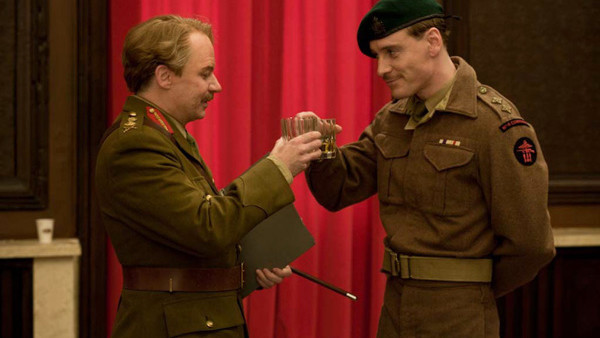Quentin Tarantino: Definitive Guide To Homages, Influences And References
Inglourious Basterds
15. Le Corbeau

French director Henri-Georges Clouzots 1943 movie Le Corbeau (translated as The Raven) can be seen early on as the marquee movie at Soshanna's cinema. This can only be possible in Tarantino's universe as the film was actually banned from occupied France by the Nazis as it revolves around a group of friends who turn against each other over gossip, misinformation and paranoia in a small French village, an obvious allegory for what was happening in the country.
14. The Other Movie Posters
Other movie posters glimpsed throughout Inglourious Basterds include: Les Vampires (1915), Avalanche (1930) and Dominio (1943).
13. Feneche

Mike Myers' high intelligence British officer Ed Fenech is named after Euro-exploitation actress Edwige Fenech who starred in a number of Italian sex comedies and giallo films between the 60s and 80s. Likely a big fan of hers when growing up and exploring world cinema, Tarantino actually offered Fenech a role in the Tarantino produced and Eli Roth directed Hostel: Part II.
In the one scene Myers' appears in Inglourious Basterds, Tarantino purposefully parody/homages the atypical British general and exposition character in World War II movies. "We have all our rotten eggs in one basket" he says about the plot to pry all high-ranking Nazis to a French cinema that the Allies plan to blow up, likely a line taken from The Great Escape where a senior Nazi office explains why they couped up the most troublesome Allied prisoners together; "We have in effect put all our rotten eggs in one basket."